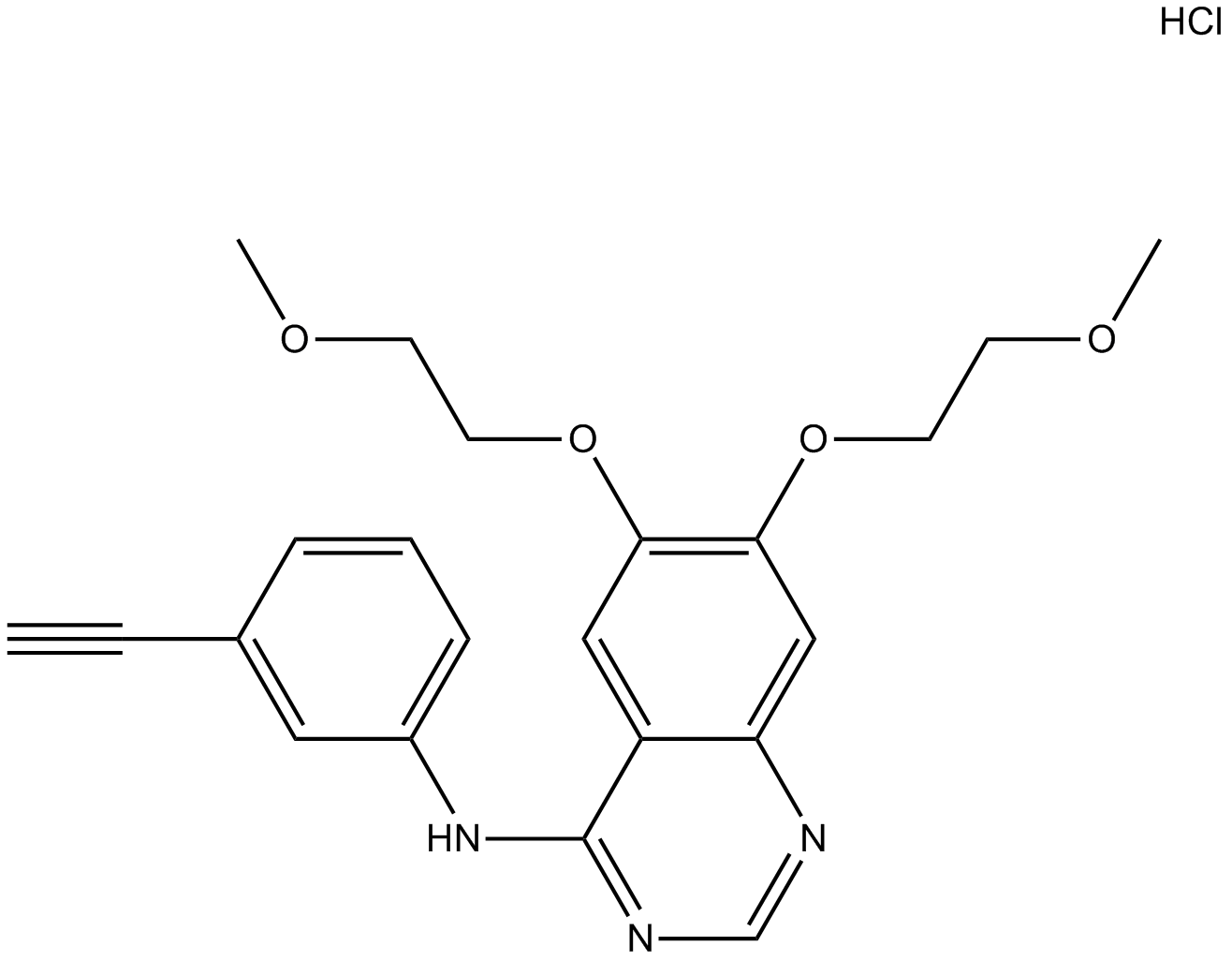Erlotinib Hydrochloride (Synonyms: CP-358774 hydrochloride; NSC 718781 hydrochloride; OSI-774 hydrochloride) |
| Catalog No.GC15600 |
An EGFR tyrosine kinase inhibitor
Products are for research use only. Not for human use. We do not sell to patients.

Cas No.: 183319-69-9
Sample solution is provided at 25 µL, 10mM.
Erlotinib hydrochloride (the trade name Tarceva?) is a directly acting inhibitor of epidermal growth factor receptor (EGFR/HER-1) tyrosine kinase with an IC50 of 2 nM.
Epidermal growth factor receptor (EGFR) is one member of the ErbB family which includes EGFR (ErbB1), ErbB2, ErbB3 and ErbB4. The activation of EGFR is dependent on the binding of peptide growth factors to the receptor. In many carcinomas, the presence of EGFR mutation leads to the activation of EGFP, which causes cell proliferation and other cancer processes [1].
Selective inhibition of EGFR tyrosine kinase by erlotinib hydrochloride leads to the disruption of cancer growth and development which include cell migration, proliferation, angiogenesis, and apoptosis. For instance, erlotinib hydrochloride was shown to induce cell apoptosis and G0/G1 cell cycle arrest in hepatocellular cancer cells, Bxpc-3 and PANC-1 cells, thereby enhancing chemosensitivity towards cytostatics [2, 3].
In addition, this product is widely researched and used for the treatment of human advanced non-small cell lung cancer (NSCLC) [4]. In pancreatic cancer, erlotinib hydrochloride was also reported to exhibit an anti-tumour effect [5].
References:
1. Melosky B. Review of EGFR TKIs in Metastatic NSCLC, Including Ongoing Trials. Front Oncol 2014,4:244.
2. Zheng YT, Yang HY, Li T, Zhao B, Shao TF, Xiang XQ, et al. Amiloride sensitizes human pancreatic cancer cells to erlotinib in vitro through inhibition of the PI3K/AKT signaling pathway. Acta Pharmacol Sin 2015,36:614-626.
3. Huether A, Hopfner M, Sutter AP, Schuppan D, Scherubl H. Erlotinib induces cell cycle arrest and apoptosis in hepatocellular cancer cells and enhances chemosensitivity towards cytostatics. J Hepatol 2005,43:661-669.
4. Singh N, Jindal A, Behera D. Erlotinib usage after prior treatment with gefitinib in advanced non-small cell lung cancer: A clinical perspective and review of published literature. World J Clin Oncol 2014,5:858-864.
5. Renouf DJ, Tang PA, Hedley D, Chen E, Kamel-Reid S, Tsao MS, et al. A phase II study of erlotinib in gemcitabine refractory advanced pancreatic cancer. Eur J Cancer 2014,50:1909-1915.
Average Rating: 5 (Based on Reviews and 30 reference(s) in Google Scholar.)
GLPBIO products are for RESEARCH USE ONLY. Please make sure your review or question is research based.
Required fields are marked with *




















